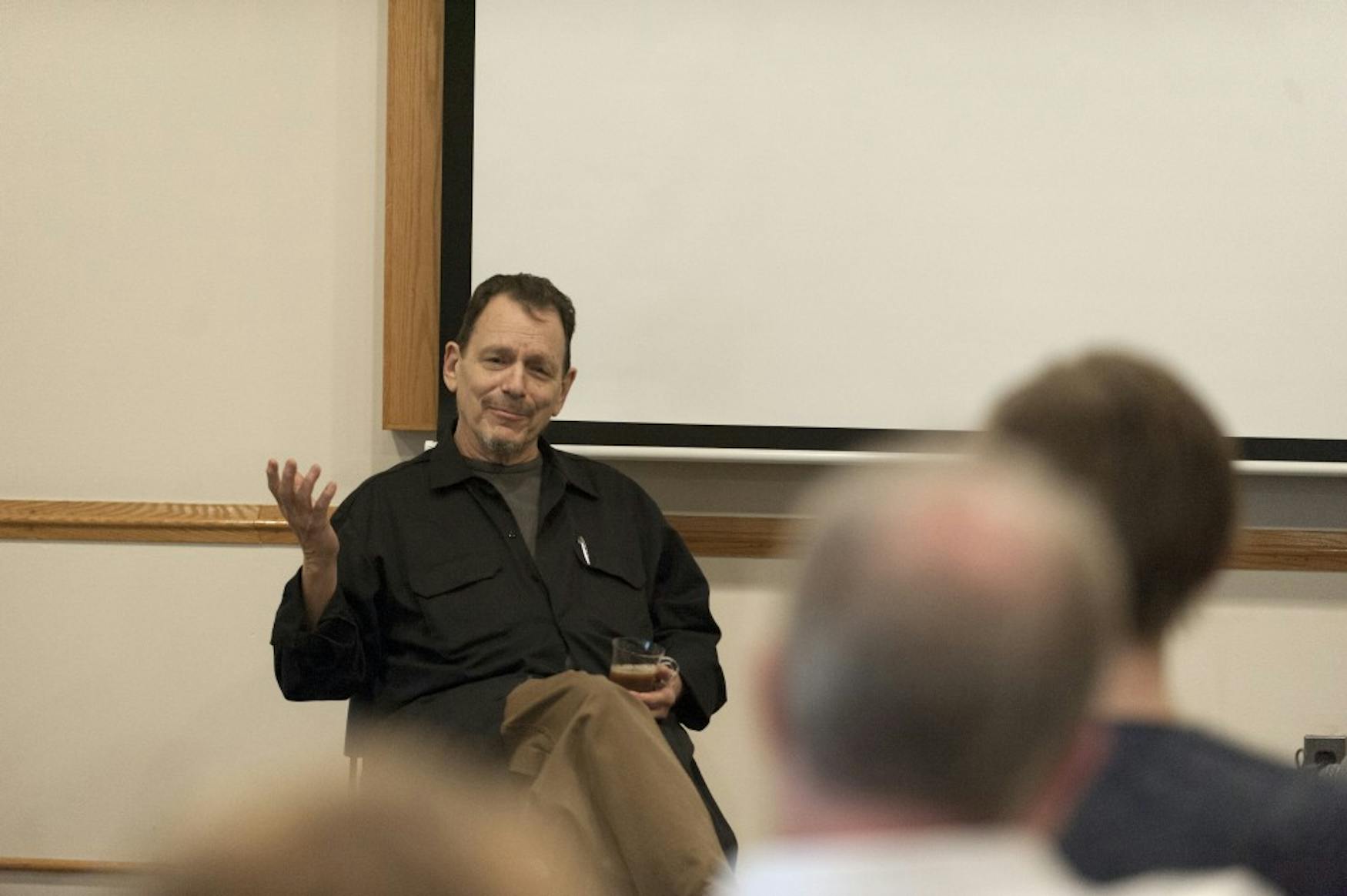‘Buyer Beware’ author discusses life and work
Playwright Michael Weller ’65 is widely known on campus for recently penning the controversial “Buyer Beware,” but in his Wednesday talk with the Brandeis community, Weller focused on his decades-long relationship with the University. Opening with a tributary video which congratulated him on receiving Brandeis’ 2017 Creative Arts Award, the event allowed Weller to represent himself on campus.
The discussion followed the Tuesday night award ceremony. Moderator Prof. Thomas Doherty (AMST) opened the conversation by asking Weller to elaborate upon four points brought up in his introductory video: Weller’s experience with the late Prof. Emeritus John Matthews (THA), his work, his dislike of social media and the “brouhaha” surrounding “Buyer Beware.”
Regarding “Buyer Beware,” Weller said simply, “There’s nothing much I can say except I’m very sorry it didn’t happen.” He declined to comment on any upcoming production of the show, and said “Buyer Beware” had been a somewhat political play but really was about people “trying to make sense of their lives” in a political place. Weller invited questions but pointed out that no one had seen it so the discussion would be limited.
The sole audience question about “Buyer Beware” concerned the process of writing and researching it using the University’s Lenny Bruce archives. Weller explained that he listened to Lenny Bruce while writing, and that he “started to hear him;” he began to feel a personal connection to Bruce. As he wrote the play, about a student inspired by Bruce to write about events at Brandeis, he channeled his connection with Bruce into the protagonist.
The majority of the discussion focused on Weller as a person and playwright. To explain his dislike of social media, Weller shared an anecdote from his time at Brandeis: In Weller’s dorm, a bystander interrupted a heated debate about Israel and eloquently explained each side’s argument. To Weller, that ability to hear two sides of an argument and understand them both is the pathway to wisdom, and he fears that on social media, mob rule and “banging buttons” has replaced that. He fears that the ability to broadcast one’s opinions instantly means people do not question themselves, but he acknowledged that perhaps people are relearning how to “be judicious.”
Weller’s other Brandeis anecdotes involved his mentor, Matthews. Weller had been intimidated by his fellow Brandeis students, seeing them as “intellectual and … very in the tradition of being Jewish,” and felt “way above [his] head” until Matthews encouraged him as a writer. Matthews also advised Weller to move to London rather than New York after graduation, which was “the best advice.”
Weller’s career took off in London with his first play, “Moonchildren”, which Doherty described as a 1960s version of “Friends.” Weller’s transition into screenwriting happened by chance; he received a call one day asking him to write a screenplay of “Hair” with Czech director Milos Forman. According to Weller, Forman was the only screenwriter whose work had deeply affected him.
Asked by Prof. Maura Farrelly (AMST) to elaborate, Weller explained that Forman created subversive films about ordinary people living their lives: “He managed to … say something that had a political implication without being an overt political statement,” a radical accomplishment in repressed Czechoslovakia.
Weller’s newest play, “Jericho,” opened in New York, on Jan. 25. Weller teaches at The New School and is president of the “Writers Guild Initiative,” which encourages exonerated prisoners, Dreamers and veterans to write. Weller noted that writing is a unique process because it’s “a way to discover what you really think … when things are quiet.”
“A Conversation With Michael Weller” was co-sponsored by the American Studies Program and the Division of Creative Arts.



Please note All comments are eligible for publication in The Justice.